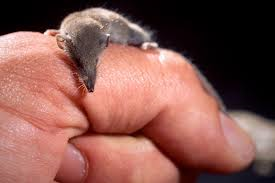Soricimed Biopharma Inc., the Moncton-based biotech company developing peptide-based cancer treatments, has announced the U.S. Food and Drug Administration has granted orphan drug designation to its flagship compound for the treatment of pancreatic cancer.
The FDA granted a similar designation earlier this year to the compound SOR-C13 for the treatment of ovarian cancer.
“Receiving orphan drug status in both ovarian and pancreatic cancer highlights the unmet medical need and the potential of SOR-C13 to address these devastating cancers,” said Soricimed President and CEO Paul Gunn in a statement. “We look forward to meeting with the FDA to discuss our development plans for SOR-C13 and to initiating additional clinical trials in 2017.”
Orphan drug status qualifies Soricimed for various development incentives, including tax credits and reduced filing fees for clinical trials undertaken in the U.S. If approved for commercialization by the FDA, SOR-C13 may qualify for seven years of marketing exclusivity in the U.S.
In granting orphan drug status, the regulatory body reviews the rarity and severity of the medical condition, as well as the potential benefit of the product treating this condition.
Earlier this year, Soricimed reported it had received positive initial readings from the Phase 1 trials of SOR-C13, including indications that it can stabilize some cancer tumours.
Sor-C13 is a peptide, or a naturally occurring biological molecule, that clings to the calcium in a cancer cell and deprives it of oxygen, thereby killing the tumour. Soricimed hopes to establish that it is an effective means of treating cancer with minimal suffering for the patient.
Soricimed began when Mount Allison professor Jack Stewart – now the Chairman and Chief Scientific Officer – discovered interesting medical properties in the saliva of the northern short-tailed shrew. After further research, Stewart’s team isolated the key compound in the saliva and learned that among other things it could be used to treat cancer.
Pancreatic cancer remains one of the world’s deadliest cancers, with a five-year survival rate of eight percent, said Soricimed. According to the Cancer research Institute, each year more than 337,000 people worldwide are diagnosed with pancreatic cancer and more than 330,000 people die from the disease.
At the recent American Association of Cancer Researchers annual meeting, Soricimed released positive results indicating safety, tolerability and potential activity in a Phase I trial of SOR-C13 in subjects with advanced solid tumour cancers.
Subjects were enrolled at Juravinski Cancer Centre, London Health Sciences Centre and the University of Texas MD Anderson Cancer Center.










